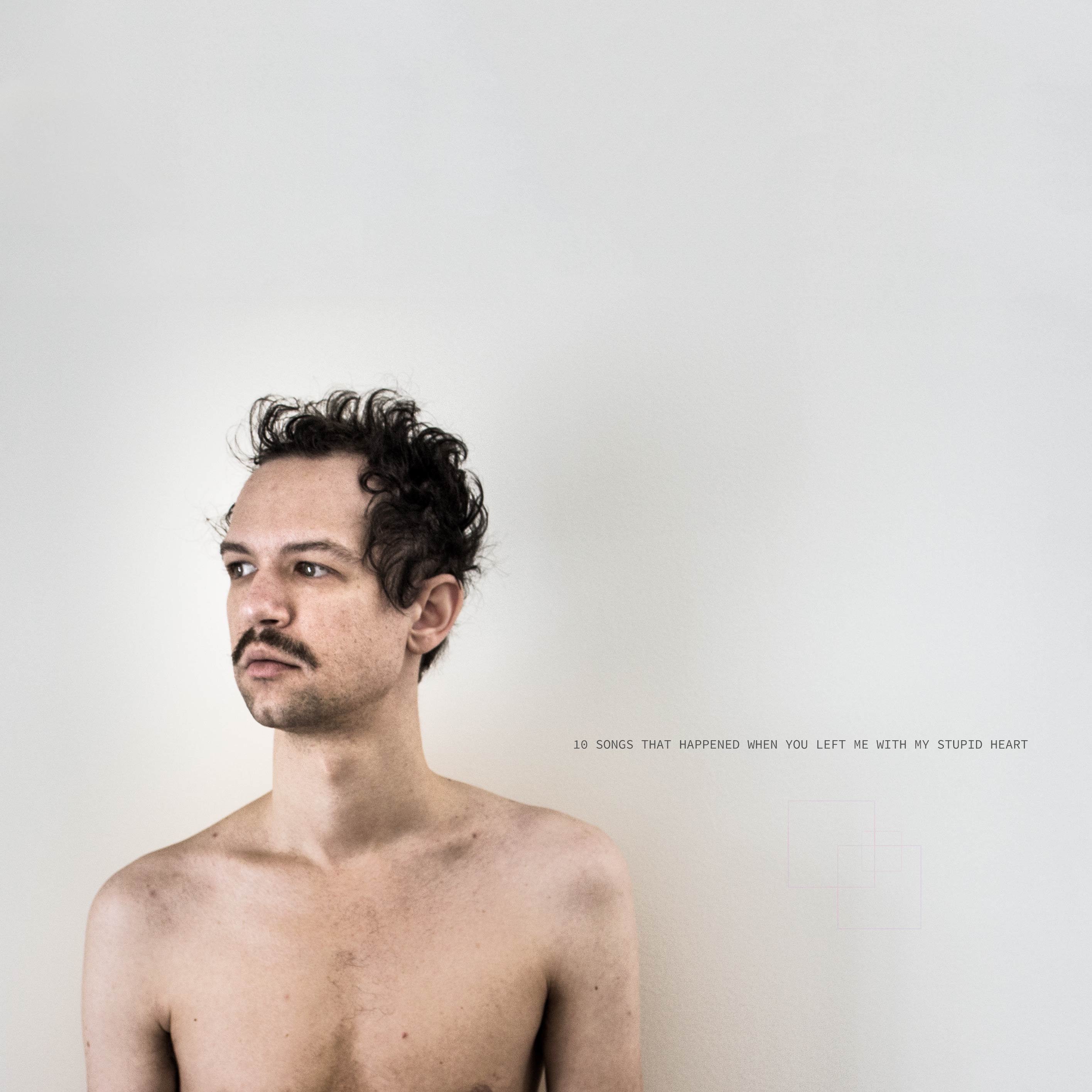: 10 Songs That Happened When You Left Me With My Stupid Heart
The crux of Darwin’s fourth album, 10 Songs That Happened When You Left Me With My Stupid Heart, is Darwin’s singular songwriting. Darwin, the autodidact, is fiercely original as an artist, and enormously catchy and accessible. In the contemporary musical landscape, overfull as it is with redolent reverbs and saccharine synthesizers—a style of music he jokingly calls “Spotify-wave”—Darwin still makes sparse guitar songs. But not the kind of mellow, “psychedelic” 70’s-inspired stuff typical of most guitar-based indie groups nowadays. Songs with energy (“why should EDM have the monopoly on danceability?”). Songs with vulnerability. Songs with relatable, audible, intelligible lyrics. “Ever since I bought my first CD—Last Splash by the Breeders—I’ve been internally railing against the kind of vague nonsensical stuff that passed for lyrics in the 90’s. It’s not that it was objectively bad, but it was so cryptic and over my 13 year old head that it infuriated me.”
“Everyone is getting a free pass, lyrically,” Darwin says. Had it not been for the full year he spent in 2007 attending weekly open mic nights, at Sidewalk Café in NYC’s East Village, hosted by scene godfather Lach (whose progeny include Beck, Regina Spektor, and The Moldy Peaches) Darwin might never have been challenged to develop his voice as a lyricist. “I’ve always respected country songwriters because they’re some of the last ones standing, lyrically. They’re some of the last writers not to be getting away with murder out here. They don’t mess around in Nashville.”
It’s not that he won’t try new things. Lead single and album opener, The World’s Best Kisser, came in part from a co-writing session that was planned but never happened with Grammy-winning child prodigy Jacob Collier. Collier, a jazz whiz, often uses the harmonizer in his live shows, which inspired Darwin to adopt it in the studio to fantastic effect on the song. Whereas harmonizers have been used ornamentally by many trend-following pop producers of late, Darwin’s first and only usage more readily recalls what is arguably the definitive pop song to use the instrument: the heartfelt classic “Hide and Seek” by fellow DIYer Imogen Heap.
The World’s Best Kisser is, in Darwin’s words, “a reflection on the mystery of attraction and the attraction of mysteries. After writing the song, I learned via Joseph Campbell of Thomas Mann’s concept of “erotic irony”: that flaws/imperfections are what make a person identifiable within a piece of devotional art. And so to write a love song that is truly about a specific person is to write something that cuts the person down to size a bit. Which is paradoxical but true—that in order to glorify someone in a love song, you might point out their defects.”
The album also features, for the first time, a few juicy electric piano riffs in lieu of his characteristic stratocaster, and even a full-fledged trumpet solo by then-roommate Alex Toth (of indie band Rubblebucket).
Darwin Deez is one of the few indie musicians who truly ought to be much more famous than he is. Someone with the refreshing ability to be both goofy and grim. Someone with the songwriting chops to express the human condition artfully, in a way that cuts through thick clouds of cultural static. Someone with his own sound and his own style. “I’m mixed; my dad is half black and my mom is white. Maybe that’s why I make the kind of music I make. It’s definitely why my hair was like that. That hairstyle was the only way I could figure out to wear it that looked good to me. Mixed race hair is definitely a thing. My dad is always talking about the mixed race experience.”
The origin of his originality is beside the point. It’s here. It’s been here. And on this record, there is a wider-than-ever range of its expression both instrumentally and vocally. And Darwin always delivers the most unique sing-a-longs, heartbreak or no.
